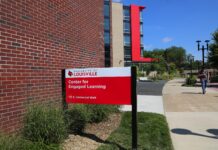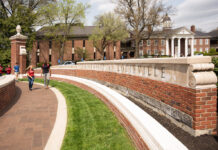
An interdisciplinary team of researchers from several institutions headed by the University of Chicago and including the University of Louisville has found evidence that cannabidiol (CBD), a product of the cannabis plant, can inhibit infection by SARS-CoV-2 in human cells and in mice.
The study, published Jan. 20 in Science Advances, found CBD showed a significant negative association with SARS-CoV-2 positive tests in a national sample of medical records of patients taking the FDA-approved drug for treating epilepsy. The researchers now say that clinical trials should be done to determine whether CBD could eventually be used as a preventative or early treatment for COVID-19.
They caution, however, that the COVID-blocking effects of CBD come only from a high purity, specially formulated dose taken in specific situations. The study’s findings do not suggest that consuming commercially available products with CBD additives that vary in potency and quality can prevent COVID-19.
Scientists have been looking for new therapies for people infected by the coronavirus and emerging variants, especially those who lack access to vaccines, as the pandemic continues across the country and world and as breakthrough infections become more common.
“The Commonwealth of Kentucky has a robust hemp agriculture, so we were pleased to find that pharmaceutical grade CBD is worth testing in future human clinical studies,” said Kenneth Palmer, study coauthor who headed the UofL research team. “In response to the COVID-19 pandemic, our team developed expertise in SARS-CoV-2 infection models and we welcomed the opportunity to collaborate with the University of Chicago team to confirm the efficacy of CBD treatment against SARS-CoV-2.”
Palmer is director of the Center for Predictive Medicine for Biodefense and Emerging Infectious Diseases and the Leona M. and Harry B. Helmsley Charitable Trust Endowed Chair in Plant-based Pharmaceutical Research at UofL. The center houses the Regional Biocontainment Laboratory, one of only 12 regional and two national biocontainment labs in the United States and the only one in Kentucky. Established with support from the NIH to conduct research with infectious agents, the lab includes Biosafety Level 3 facilities built to the most exacting federal safety and security standards.
Researchers from the University of Louisville co-authoring the study with Palmer are Divayasha Saxena, Jon D. Gabbard, Jennifer K. Demarco, William E. Severson and Charles D. Anderson. The research was directed by the University of Chicago and other scientists involved are from the National Argonne Laboratory, the University of Illinois at Chicago and the National COVID Cohort Collaborative Consortium.
For more detail on how medical-grade CBD shows promise as a treatment for COVID-19, check out the full story here.

































